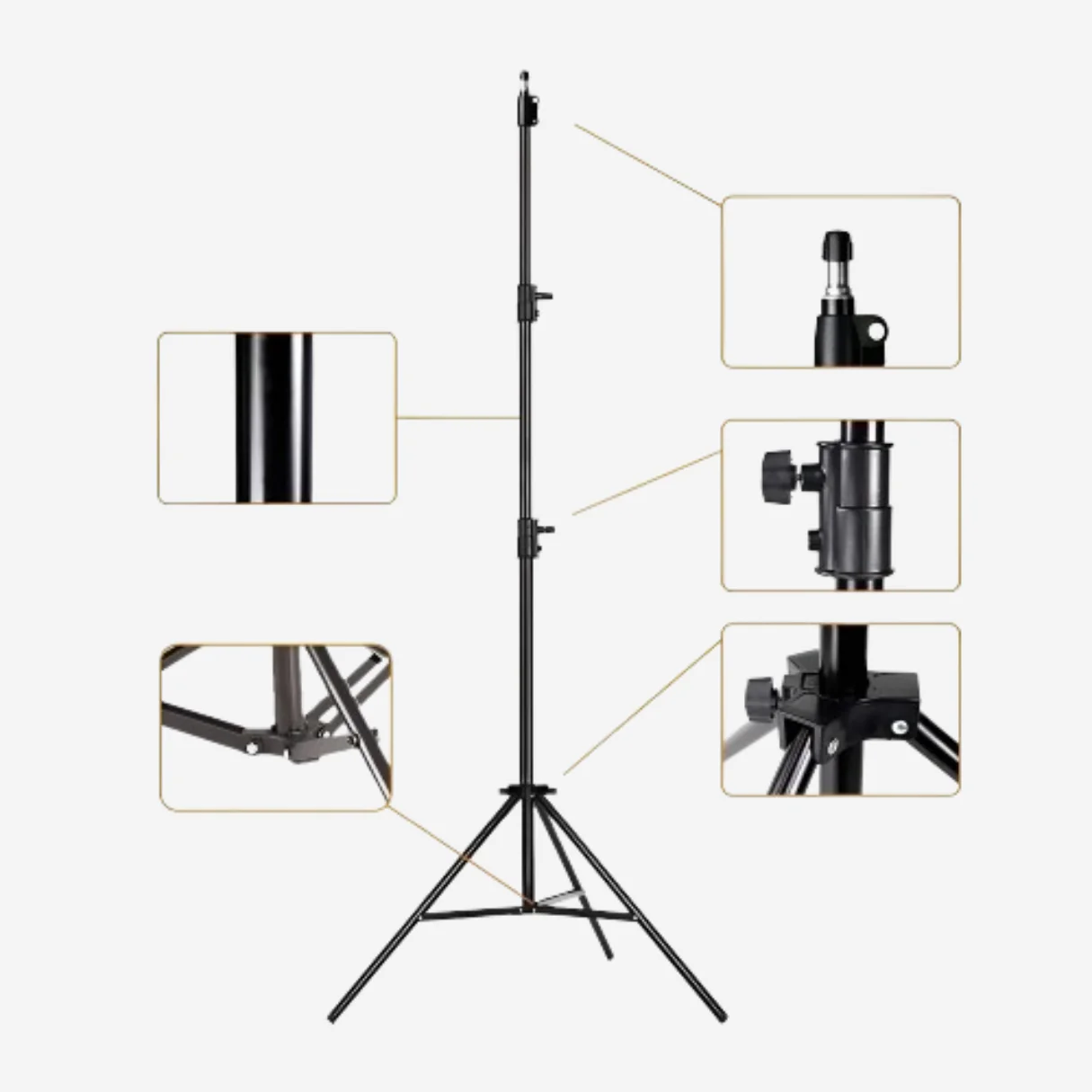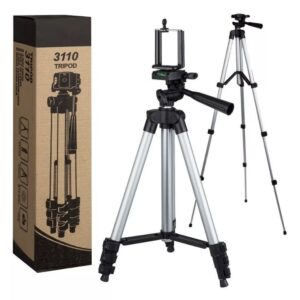A tripod is an essential tool for photographers and videographers that provides stability and support for cameras, smartphones, or other devices. Here’s a complete guide to tripods, including their features:
- Types of Tripods
- Portable Tripods: Lightweight and compact, designed for travel and casual use.
- Studio Tripods: Heavy-duty tripods used in cntrolled environments like studios.
- Professional Tripods: Robust with advanced features for professional photography.
- Mini Tripods: Small and portable, ideal for smartphones or compact cameras.
- Tabletop Tripods: Designed for small devices and close-range shots on flat surfaces.
- Flexible Tripods: Features bendable legs for mounting on uneven surfaces or poles.
- Key Features
- Material
- Aluminum: Lightweight and affordable.
- Carbon Fiber: Lightweight, durable, and vibration-resistant, suitable for professionals.
- Plastic: Budget-friendly but less durable.
- Height Adjustability
- Maximum and minimum height settings, ranging from tabletop height (~10 inches) to extended height (~6 feet or more).
- Center column for additional height adjustment.
- Weight Capacity
- Ranges from 1-2 kg for lightweight tripods to over 15 kg for professional ones.
- Leg Sections
- Number of leg sections affects portability and stability (usually 3-5 sections).
- Twist or flip-lock mechanisms to secure legs.
- Head Type
- Ball Head: Smooth and versatile for quick adjustments.
- Pan-Tilt Head: Precise control for horizontal and vertical movements.
- Fluid Head: For smooth motion in videography.
- Gimbal Head: Designed for long lenses and wildlife photography.
- Feet Type
- Rubber feet for indoor use.
- Spiked feet for outdoor use on uneven terrain.
- Quick-Release Plate
- Enables fast attachment and detachment of the camera.
- Bubble Level
- Ensures the tripod is perfectly level for stable shots.
- Foldability and Portability
- Collapsible design for easy transportation.
- Travel tripods often come with carrying cases.
- Additional Features
- Hook at the center column to add weight for extra stability.
- Smartphone and GoPro adapters for versatility.
- Built-in monopod functionality in some models.
- Advantages of Using a Tripod
- Stability: Prevents camera shake for sharp images.
- Long Exposure Shots: Ideal for low-light photography and capturing motion (e.g., waterfalls, stars).
- Consistent Framing: Perfect for panoramas and time-lapse photography.
- Versatility: Supports different devices and allows creative angles.
- Professional Quality: Essential for professional shoots like portraits and videos.
- Popular Brands
- Manfrotto: Known for durability and innovation.
- Gitzo: High-end tripods with carbon-fiber construction.
- Joby: Famous for flexible GorillaPods.
- Benro: Offers good quality at an affordable price.
- Vanguard: Provides a balance of price and functionality.
- How to Choose the Right Tripod
- Purpose: Determine if you need it for photography, videography, or both.
- Device Compatibility: Match the tripod’s weight capacity with your camera or device.
- Portability: Opt for lightweight and foldable tripods for travel.
- Budget: Choose between affordable options and professional-grade tripods.
- Features: Assess advanced features like gimbal heads or monopod functionality based on your needs.






There are no reviews yet.